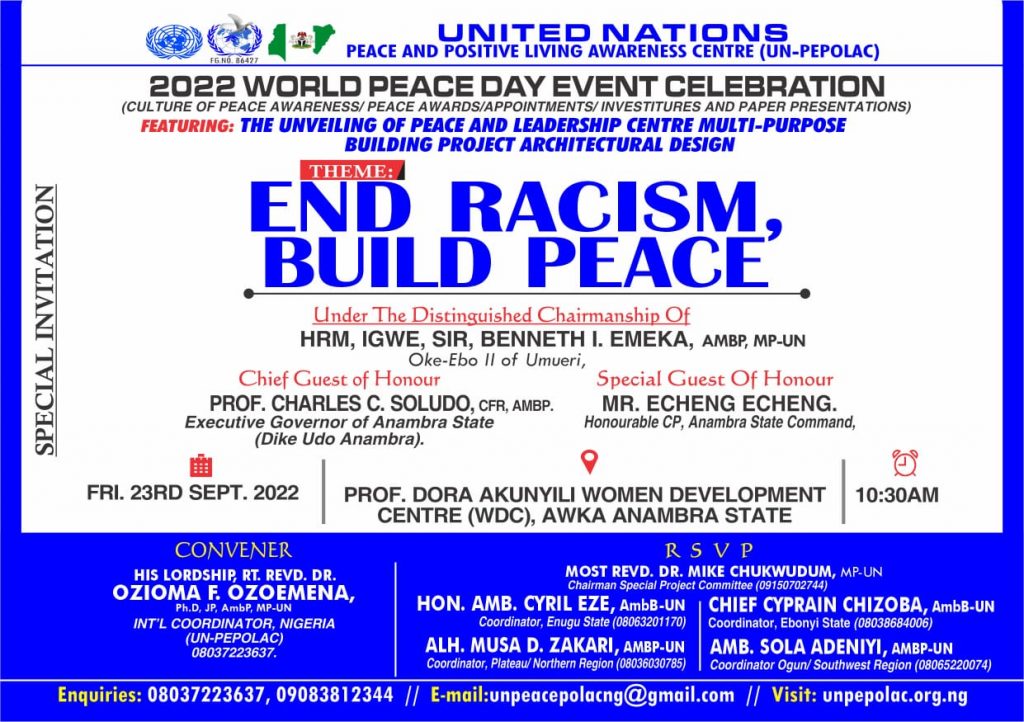Peace building is an activity that aims to resolve injustice in non-violent ways and to transform the cultural and structural conditions that generate deadly or destructive conflict. It revolves around developing constructive personal, group, and political relationships across ethnic, religious, class, national, and racial boundaries. The process includes violence prevention; conflict management, resolution, or transformation; and post-conflict reconciliation or trauma healing before, during, and after any given case of violence.
As such, peace building is a multidisciplinary cross-sector technique or method that becomes strategic when it works over the long run and at all levels of society to establish and sustain relationships among people locally and globally and thus engenders sustainable peace.
Peace building is multidimensional including political, security, social, and economic dimensions, and cuts across sectors; education, Water Safety and Hygiene, Health, nutrition, child protection, gender and occurs at all levels in society, and includes governments, civil society, the United Nations system, as well as an array of international and national partners.
The activities included in peace building vary depending on the situation and the agent of peace building. Successful peace building activities, create an environment supportive of self-sustaining, durable peace; reconcile opponents; prevent conflicts from restarting; integrate civil society; create rule of law mechanisms; and address underlying structural and societal issues. To accomplish these goals, peace building must address functional structures, emotional conditions and social psychology, social stability, rule of law and ethics, and cultural sensitivities.
As it were, in Anambra State there is an urgent need to establish “Peace building and Conflicts Management Agency”, as the lacuna has existed until now in the State.
There have been issues of violent conflicts among some communities in Anambra State in the past like and some other intra and inter communal land disputes. There are other cases of town unions and caretaker committees’ crises, traditional rulership tussles and conflicts in many communities, and internal or external crises bedeviling various markets and traders’ unions and likes in Anambra State. These issues and related matters could hamper government developmental projects and cause loss of focus in governance, in a situation where such Agency is not in place to help the State Government in handling such cases and matters.
Often times, the attention of the government goes to constituting Ad-hoc Committees or Panels of Inquiries into such matters which sometimes may not see the light of the day due to pressures and circumstances.
Meanwhile, the administration of Professor Chukwuma Soludo must be applauded for frontal and proactive measures taken so far in fighting insecurity and violence in his few months in office and significantly, the constitution of Justice and Peace Commission with the terms of reference and time frame to submit its reports and recommendations. This is a step in the right direction, but it must be noted that this approach and method only addresses post- conflict situations and still very inadequate to holistically tackle the monsters mitigating against peace in Anambra State. But with the establishment of Peace and Conflicts Management Agency in Anambra State, it would address the issues especially putting in place the crises prevention mechanisms and fresh orientation on the culture of peace, peace education and social rebirth. By this approach we would have reduced tensions and potential disputes and conflicts and be able to sustain a peaceful environment and livable society.
Written by RT REVEREND DR OZIOMA OZOEMENA









Comments are closed for this post.